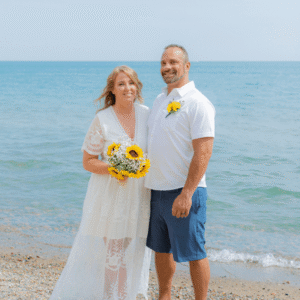Breaking Down Emotional Unavailability
Figuring out emotional unavailability is a big deal when it comes to relationships. Knowing what it means and why it matters helps folks handle their connections better.
What’s Emotional Unavailability All About?
Emotional unavailability is when someone just can’t, or won’t, open up emotionally in a relationship. This can show up as having a hard time talking about feelings, keeping things intimate, or committing deeply to a partner. People acting this way might find it tough to really connect with others, leaving their partners feeling let down and their relationships strained.
Why Spotting Emotional Unavailability Matters
Catching emotional unavailability early in a relationship is key to setting clear expectations and limits. Spotting the warning signs and behaviors can help people decide what they want from their relationships and take action to fix any hidden problems. Ignoring this issue might lead to talking problems, unfulfilling relationships, and struggles in trusting a partner.
Grasping how emotional unavailability affects relationships can lead to personal growth and better connections. For more tips on communication in relationships, check out our article on importance of communication in relationships. Open chats and looking inward can clear the way for breaking down emotional walls and nurturing connections full of mutual understanding and respect.
Common Signs of Emotional Unavailability
Love’s like a scavenger hunt sometimes. To recognize emotional unavailability, we gotta look for those pesky clues that suggest someone’s holding back in the heart department. These signs often sneak in as habits screaming, “I don’t do emotions well.” Knowin’ these tricks helps if you’re stuck in a love minefield.
Fear of Commitment
Hitting the brakes at the mention of commitment? That’s a sign! Folks who can’t quite wrap their minds around locking down emotionally might be lugging past baggage or nursing old wounds that whisper, “Don’t get too close.” Kicking this fear asks for a deep dive into self to untangle the reasons behind the fear. Check our complete breakdown on fear of commitment if you need more help wrestling with this.
Difficulty Expressing Emotions
Another tell? They can’t talk feelings without breaking a sweat. Emotionally unavailable people might clam up when it’s time to open up, leaving their partners hanging. It often leads to mix-ups and fights because connecting emotionally feels like deciphering a secret code. Fixing this? Think of it as getting a relationship translator by working on those communication skills and making room to be real with feelings.
Prioritizing Independence Over Intimacy
Being fiercely independent isn’t wrong — until it starts haunting relationships. When being ‘me, myself, and I’ becomes more important than the ‘us,’ it might suggest they’re walling off emotionally. This looks like shunning emotional help or keeping a partner at arm’s length. Striking a balance between alone-time and together-time paves the way for healthy love and setting healthy boundaries.
Spotting these signs ain’t just about pointing fingers but understanding what’s blocking love’s path. When you tune in, it’s easier to bridge the gap with some soul-searching and a growth mindset. It paves the way for genuine, heart-on-your-sleeve relationships that just feel right.
Root Causes of Emotional Unavailability
Emotional unavailability is that tricky little rascal hiding in the corners of relationships, making it tough for someone to truly connect and share feelings. Figuring out why someone might struggle with this can really help in breaking it down. Let’s break down three reasons why folks sometimes keep those emotional doors closed:
Past Trauma or Unresolved Issues
Old wounds and past traumas can put up those emotional walls, making it tough for someone to open up in relationships. Whether it’s from childhood or a previous heartbreak, these experiences can leave a person wary of getting too close. If these traumas aren’t addressed, they can act like a shadow, following someone into new relationships and keeping connections from forming fully.
Fear of Vulnerability
Who wants to risk getting hurt? That fear of being vulnerable can be a huge roadblock! If someone’s been hurt before, they might double down on protecting themselves instead of opening up. By keeping those emotional shields up—whether because of past betrayals or the worry of emotional injury—they might inadvertently block out the closeness they crave.
Self-Esteem and Self-Worth Issues
Feeling unsure about oneself can definitely influence emotional availability. When self-doubt sneaks in, folks might shy away from emotional ties and sharing personal feelings. This inner critique can often lead to avoiding deep connections or fearing that once they open up, they’ll be judged or hurt. Building up self-confidence can help open the doors to better, more emotional bonds.
Grasping these reasons behind emotional unavailability is a big leap toward healthier, richer relationships. Recognizing and working through past pains, fears of showing your true self, and self-worth issues can help folks build more fulfilling connections with friends and partners alike. For even more tips on building strong ties, don’t miss our piece on the importance of communication in relationships.
Impact on Relationships
When someone’s emotionally unavailable, it can throw relationships for a loop, creating drama and distance between folks who should be close.
Communication Breakdown
When someone struggles with sharing feelings, it messes with how folks chat. Imagine trying to have a heart-to-heart with a robot; it ain’t easy! Misunderstandings and frustration crop up, and before you know it, you’re more like roommates than partners. It’s like a constant game of charades where nobody’s winning. For those wanting to fix the chatter issue, we’ve got some wisdom stashed away over at importance of communication in relationships.
Cycle of Unfulfilling Relationships
Ever get the feeling you’re trapped in Groundhog Day but with your love life? That’s how it goes for those who can’t bond emotionally. It’s like trying to build a bridge with noodles—things fall apart fast or stay surface-level. This mess leaves folks feeling alone at a crowded party, and their need for connection ends up gathering dust on a shelf. Breaking free from this loop means digging into some serious self-reflecting action and knocking down those emotional walls.
Challenges in Building Trust
Trust-building’s as crucial as good Wi-Fi, but emotional unavailability can turn it into a tough gig. Those who battle opening up emotionally find it hard to rely on others or let themselves care deeply. It’s like trying to build a sandcastle during high tide—just doesn’t hold up. To get past this, face those lurking fears and try real hard to let others in. Sprinkle a bit of self-love and slowly work on sharing those deep feels, and trust can grow. For guidance on keeping relationship borders healthy, hop over to setting healthy boundaries in relationships.
Being clued in about how emotional unavailability trips up relationships can pave the way to healthier connections. Spotting the signs, tackling the heart of the matter, and taking active steps towards growing emotionally can guide individuals to solid, trust-filled relationships.
Overcoming Emotional Unavailability
Dealing with emotional unavailability in relationships is no walk in the park, but tackling it head-on is key for building healthy bonds. It demands a blend of self-awareness, a good ol’ look inside, and sometimes, reaching out for that extra professional nudge. Here’s how you can break through those emotional walls:
Seeking Professional Help
Getting support from a mental health expert, like a therapist or counselor, can be a game-changer. They help uncover what lurks beneath the surface that’s keeping emotions at bay. Through this guiding light, folks can dig into past experiences and emotions contributing to their barriers. It’s like having a toolbox filled with gadgets that help mend and reshape relationship habits.
Self-Reflection and Personal Growth
The magic of self-reflection can really shine a light on areas needing a bit of tender loving care. Spending time introspecting on emotions, actions, and relationship habits helps uncover stuff that needs some polishing. Picking up habits like journaling or mindfulness and getting input from trusted friends or family can kickstart this journey toward self-discovery and growth.
| Self-Reflection Techniques |
|---|
| Write down thoughts and feelings every day |
| Practice mindfulness and meditation |
| Get input from friends or family members |
Practicing Vulnerability and Openness
Getting past emotional barriers means opening the doors to vulnerability and honesty in relationships. Yep, it’s about being brave enough to wear your heart on your sleeve. By doing so, trust builds, intimacy blossoms, and deeper connections form with those you care about.
| Ways to Practice Vulnerability and Openness |
|---|
| Be open about feelings and emotions |
| Share your personal stories and experiences |
| Listen empathetically to others |
By mixing up these strategies—professional support, self-peeking, and letting your guard down—you can slowly step away from emotional unavailability and toward nurturing meaningful connections. It’s a work-in-progress, sure, but sticking with self-betterment and exploring your emotional core is a big leap towards paving the way for stronger connections.




